I wanted to introduce you all (finally) to our AMAZING YAGM Southern Africa Team! Each one of them brings something unique to the table to make our team of nine as special as it is. Together we are a loud, caring, hilarious, and strong family. I give thanks for every one of them and this journey we are on together.
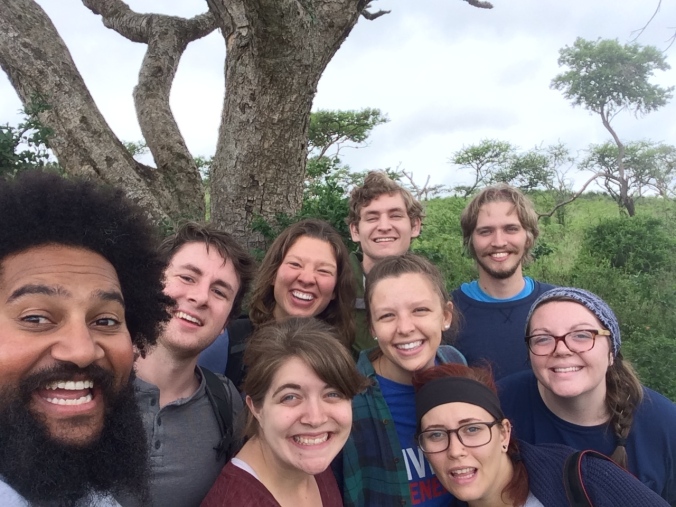
Here’s the team! (from left to right, starting with the back row)
Alex LaChapelle –WI
Pietermaritzburg, South Africa
Alex is a pastor who hails from Wisconsin and he is our SA Country Coordinator! I met him for the first time at the DIP Event where I interviewed and was then placed on the Southern Africa team (bless). During our awkward group lunch interview (lol), I was relieved; this guy was pretty cool and I had a lot to learn from him. He seemed like the exact kind of leader I needed for the year, and I was so excited for the possibility of being on the team. This is Alex’s first year as the Country Coordinator, so we are all continuing to learn a lot together and I love it! Through all the ups and downs with our teams complications with visa applications, he always made sure that we never gave up hope and that we would forever be a team of eight. I’m so grateful Alex established a strong foundation for keeping faith for our little SA YAGM family. Alex is full of laughter, ambition, and the best most hilarious accents. He tells the best stories, has an awesome taste in music (in case you didn’t know he kind of, a little bit, likes The Avett Brothers) always lends an ear, and is willing to take one for the team when monkeys chase you outside his house. (P.S. Thanks again and sorry for leaving you to defend yourself, that was my bad)
Jake Connealy –MN
Venda, South Africa
Jake is spending his year serving in Limpopo, South Africa in the Northern Diocese. He is currently teaching a business class at the high school for grades 10 and 11 and next year will be helping with English classes. Jake lives with a host family and his TshiVenda is on point. He continues to impress and inspire us with his language learning skills. Every time I tell people that we have another volunteer in Venda, they say “YO! TshiVenda is very hard.” And yet he is mastering his community’s language better than any of us, and you can quote me on that. I also met Jake for the first time at the DIP Event during our country meeting. I very much remember his accent; the Minnesota accent is fascinating. I remember seeing him again in the airport after the event and awkwardly waving, saying something like, “Yeah! Southern Africa.” Don’t worry he didn’t forget and reminded me months later. Jake is one of the most genuine, non-judgmental, and caring friends I know. He can sing like nobody’s business, thinks playing with the water when doing the dishes is fun like I do, and has hands down the best puns of anyone I have ever met. Jake continues to teach and strengthen my faith by reminding me to let go of the control I think God has; and he always has an ear to listen that is never on a time schedule. (P.S. Your raps are more lit than litrinomics)
Meredith Bruster –IA
Soweto, South Africa
Meredith is spending her year serving in Soweto, South Africa in the Central Diocese. She lives and volunteers at Diakonia AIDS Ministry. During her week she assists in creating marketing materials, after school tutoring, and bringing the biggest smile in to work. She also is a dedicated runner, in case you didn’t know, and she has been volunteering in leading some exercise classes as well. I first met Meredith during our group lunch interview with Alex at the DIP Event. I was in awe of her genuine thoughtfulness and overwhelming sense of peace. I knew I had a lot to learn from her and I was right. She constantly teaches me what it means to be a supportive friend, how to genuinely offer love and care, and helps me to appreciate my fruits and vegetables more than I ever thought I would. Everyone knows the saying; “She has a smile that lights up the room,” but that is only true if it is the Meredith Bruster; I’m beyond serious. Meredith is a beautiful singer, has hands down the most hilarious and “interesting” quotes, and hands affirmations out like candy. (Did I mention she likes to run?) I continue to be inspired by Meredith’s positivity, strength, and constant sense of wonder for this beautiful world we share. I certainly don’t thank her enough for her unwavering friendship and always offering to give a hug. (P.S. Libras will always be the best, and YOU KNOW WHY)
Jordan Zeihr – NC
Mankayane, Swaziland
Jordan is spending his year serving in Mankayane, Swaziland in the Eastern Diocese. He spends his week serving at the local primary school and chilling with his awesome host family. Jordan has become our group’s most avid and biggest fan of the soapies (South African soap operas) he watches with his host family every night; it is highly impressive. I first met Jordan at Orientation in August in Chicago when I confused him with his best friend Bryan Lester (they are both really tall and blonde and both went to UNC, honest mistake). I knew that when he got us lost on our group scavenger hunt in Chicago, and gave me so much sass about it, that we would be friends. Jordan has the best taste in music (AKA Chance the Rapper and Jack Johnson) and I absolutely love it. He really enjoys cooking, pushing me down in the sand when I’m trying to get up while playing soccer, and is an avid reader. Jordan is incredibly humble, down-to-earth, and quite hilarious. He is the kind of guy you continue to learn new things about him all the time, and I can’t wait to keep learning more as the year goes on. Thanks for reminding me to always sing and dance as if no one is watching. (P.S. The color that looks best on you is maroon, and paired with my orange watch, it’s fire. And I mean it. Go Hokies…..and Heels)
Jacob Shelor – PA
Manzini, Swaziland
Jacob is spending his year serving in Manzini, Swaziland in the Eastern Diocese. During his week he spends time volunteering at the Dean’s Office and the local crèche. I’ve actually known Jake for many years! We were both devoted VA Synod Event attendees. Jake was always singing, smiling, knew everyone and I always saw him giving out hugs (I was secretly a big fan). We knew of each other, but never had a small group together and we weren’t reunited again until we were sitting at the airport in Chicago for the DIP Event. I saw him and was so excited, another VA person! (Then I accidently called him by his twin brother’s name Josh, again so, so sorry, that was my bad). But during that overwhelming, fun and emotional weekend, Jake provided me with a sense of peace and comfort. He wrote nothing on his preference card in regards to his country placement, because his faith was strong and he trusted the process (inspiring!). I made him hold my hand during the announcements of placements, and then was in awe that we would both selected to serve in Southern Africa. Jake is a devoted and loyal friend to everyone, will always bring a smile to your face, and he continues to teach and inspire me about power of faith. (P.S. You make the best pies, Apple and Sheppard’s!)
(front row, left to right)
Anna Moorhead – WI
Bonaero Park, South Africa
Anna is spending her year serving in Bonaero Park, South Africa at the ELCSA Churchwide office in the Central Diocese. She spends her week working for ELCSA Development Services who do a variety of work on gender based violence, HIV & AIDS Nutrition Garden programs, capacity building, and cultural diversity. Anna also lives with a host family in Atlasville and loves spending time with her host sister and brother. I first met Anna at the DIP Event because we were both interviewing for the same countries. She was so sweet, calm and ready and willing to take on this year. We stayed in touch after DIP and finding out we were on the same team. I remember telling my grandparents that she would be my new best friend, even if she didn’t know it yet! Come to find out she said the same thing! Anna has the sweetest Wisconsin accent and continues to teach me so much about the Midwest (I love it). I admire her dedication to this program, her faith, and her friendships. Anna may be the sweetest, but when her sass comes out you better brace yourself, and I absolutely love that about her. She is the best bus and plane buddy (when we aren’t falling asleep lol), the biggest and best coffee fan (and chocolate), and her SA twist on green bean casserole is pretty good! Her presence is full of grace, peace, smiles (the best selfies), and positivity. Thank you Anna for your constant reminders of what it means to be a best friend. (P.S. Are you sure it wasn’t a cat?)
Abby Mandris – NY
Piggs Peak, Swaziland
Abby is spending her year serving in Piggs Peak, Swaziland in the Eastern Diocese. She lives with a host family and spends her week at volunteering at the local primary school. I first met Abby as she was boarding the plane to Chicago in Baltimore. We were Facebook friends before we met, and so as she walked passed I creepily said, “Abby!?” Luckily it really was Abby. She sat in the seat next to me, and I sighed with relief. In just our first few minutes of chatting, I was so grateful that we would get to share this experience together. This girl was the coolest and I couldn’t wait to get to know her more. Abby is pretty hilarious and has the most contagious laugh that makes you laugh even harder. She is beyond talented in photography and always captures the right moment. I continue to be inspired by Abby’s bravery, care for others, and the power of her words through writing. She absolutely has the best taste in movies and writes the sweetest cards. Abby is super go with the flow, can read through books like nobody’s business, and will always share her tomato soup with you. Abby gives the best hugs, and I couldn’t be more grateful (seriously the are the best, it’s no joke)!! I certainly don’t tell Abby enough how beautiful, strong, courageous, and inspiring she is. (P.S. Put your positive pants on! They look good on you!)
Ryan Morrow – NC
Mbabane, Swaziland
Ryan is spending her year serving in Mbabane, Swaziland in the Eastern Diocese. She works at the ELCSA Lutheran Development Service office. During her week she has the opportunity to accompany her coworkers to visit community members who are HIV positive, orphans, elderly, and/or living with a disability and helps in the LDS with paperwork in the office whenever she has the chance. I grew to love Ryan even before we met; on Facebook, we both shared our love for our favorite exactly the same favorite meal: Meatloaf with mash potatoes and broccoli. From then on I knew this girl was the absolute best. Ryan and I first met when we were randomly placed as roommates for Orientation in Chicago. Together we shared our love of Ben and Jerry’s ice cream, playing “black is lava” on the crosswalks, and beating Jordan and Bryan in foosball. Ryan is compassionate, caring and beyond genuine in her relationships. She will always do what she can to make you feel included, welcomed and loved. Ryan is the best storyteller I know; she has the best stories but tells them in ways you will never forget. Ryan is hands down hilarious and continues to make everyone and anyone around her laugh. She consistently loses what are the odds, is really good at running through sprinklers and making hand turkeys. Ryan has the biggest heart that she wears on her sleeve. Ryan continues to teach me the reality that things will always work out and God will provide. I couldn’t be more thankful for her endless friendship, always being on the same page, and constant strength to embrace this year. (P.S. Wanna bite?)
SA YAGMS 2017-2018
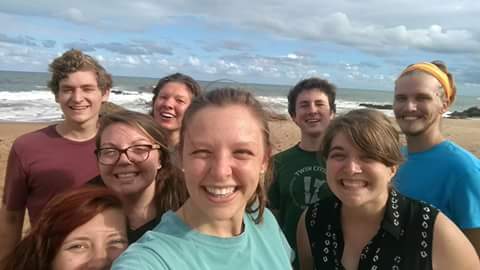


















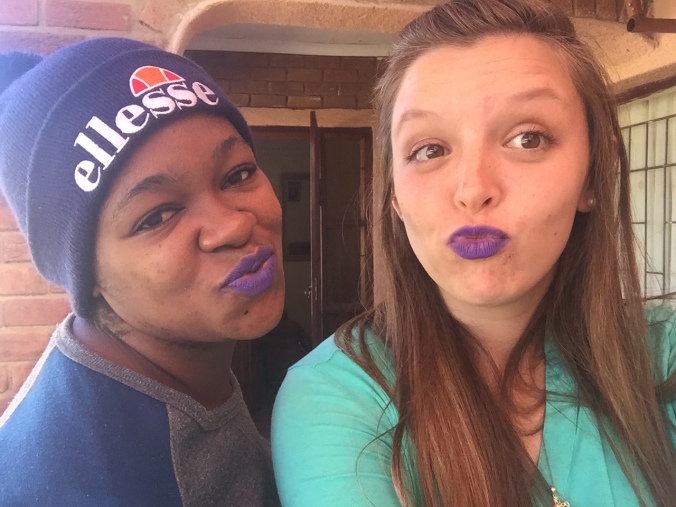
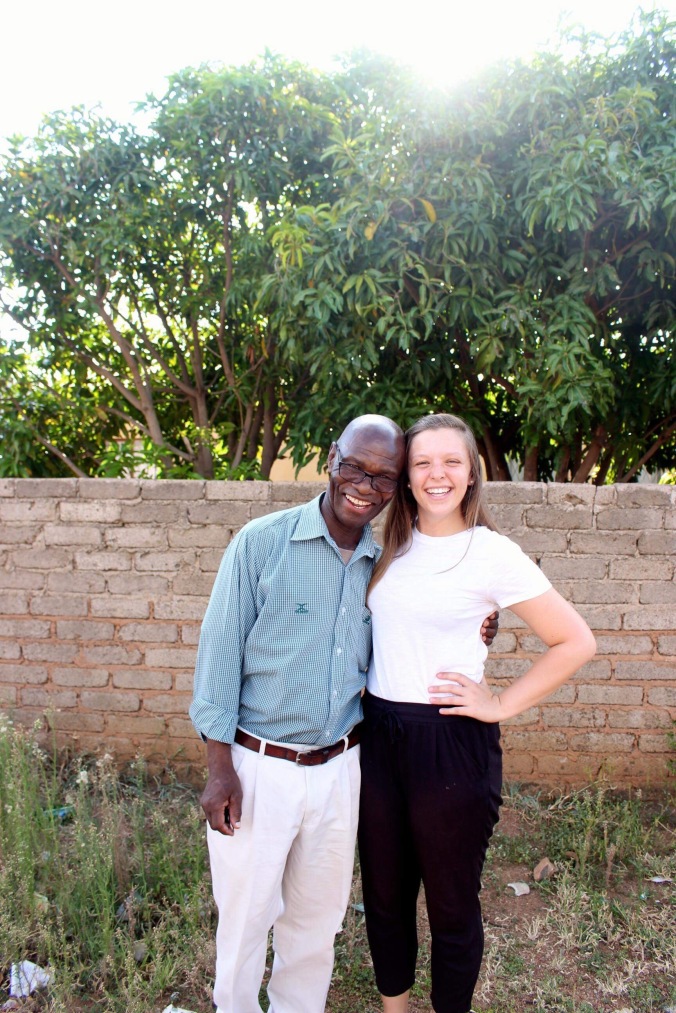

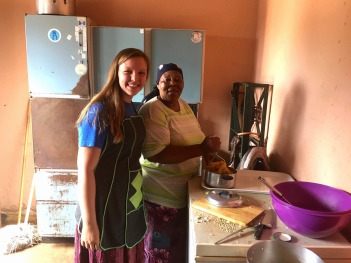
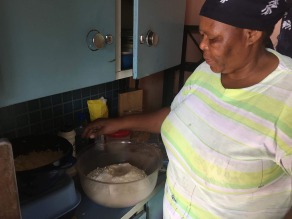
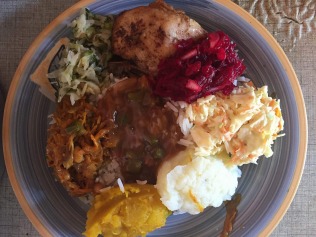
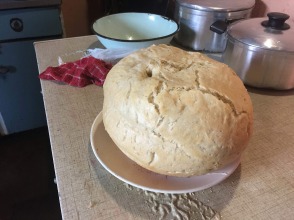
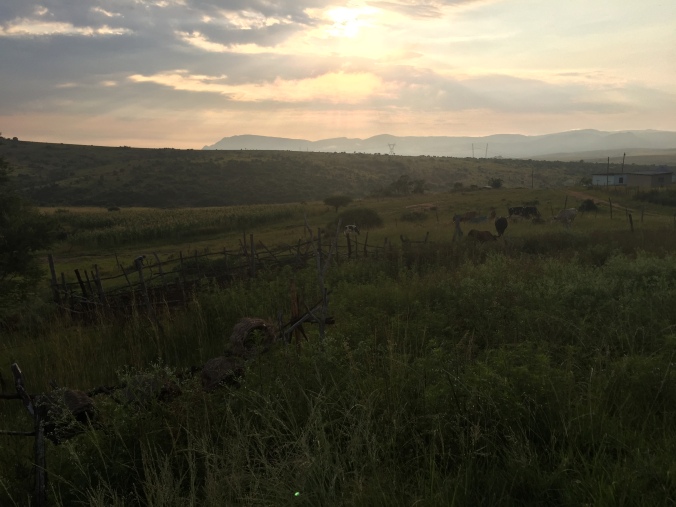 Last week I hit the road and ventured on my way to Swaziland!! I was attending a mini retreat with Alex and Jordan, and then had the chance to spend few days after visiting Jordan’s site.
Last week I hit the road and ventured on my way to Swaziland!! I was attending a mini retreat with Alex and Jordan, and then had the chance to spend few days after visiting Jordan’s site.

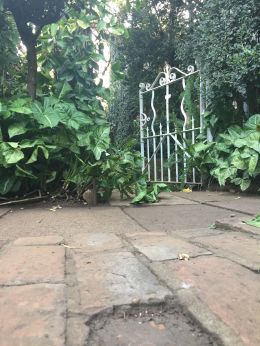 Today we went to Tea on 23, my new favorite spot in Pietermaritzburg. It’s this beautiful cafe where you can sit outside and become surrounded by all kinds of liveliness. As chickens and roosters play hide in seek in the bushes around you, you grow to be amazed at the tree near by full of purple and white flowers. Sometimes you even catch a glance of a majestic peacock passing by, but only for a second. It seems like everywhere you look there is something you didn’t notice before; a tiny chair that I would have been so eager to test out as a kid, a stone path that could lead you to a new hidden place, or a tall tree that you wonder what stories it could tell.
Today we went to Tea on 23, my new favorite spot in Pietermaritzburg. It’s this beautiful cafe where you can sit outside and become surrounded by all kinds of liveliness. As chickens and roosters play hide in seek in the bushes around you, you grow to be amazed at the tree near by full of purple and white flowers. Sometimes you even catch a glance of a majestic peacock passing by, but only for a second. It seems like everywhere you look there is something you didn’t notice before; a tiny chair that I would have been so eager to test out as a kid, a stone path that could lead you to a new hidden place, or a tall tree that you wonder what stories it could tell.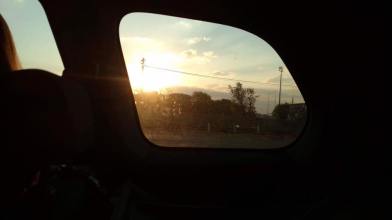 As we drive around town each day, I see so many things. I see scarlet red dirt that shines brighter midday and makes me smile as it reminds me of my childhood. I see people walking home from the store or work chatting on the sidewalk together. I hear so many different languages that ring sounds of relation rather than drowning in words. I feel the deep orange sun as it kisses the mountains goodnight. I wonder what I have missed and hope I will see it tomorrow.
As we drive around town each day, I see so many things. I see scarlet red dirt that shines brighter midday and makes me smile as it reminds me of my childhood. I see people walking home from the store or work chatting on the sidewalk together. I hear so many different languages that ring sounds of relation rather than drowning in words. I feel the deep orange sun as it kisses the mountains goodnight. I wonder what I have missed and hope I will see it tomorrow.